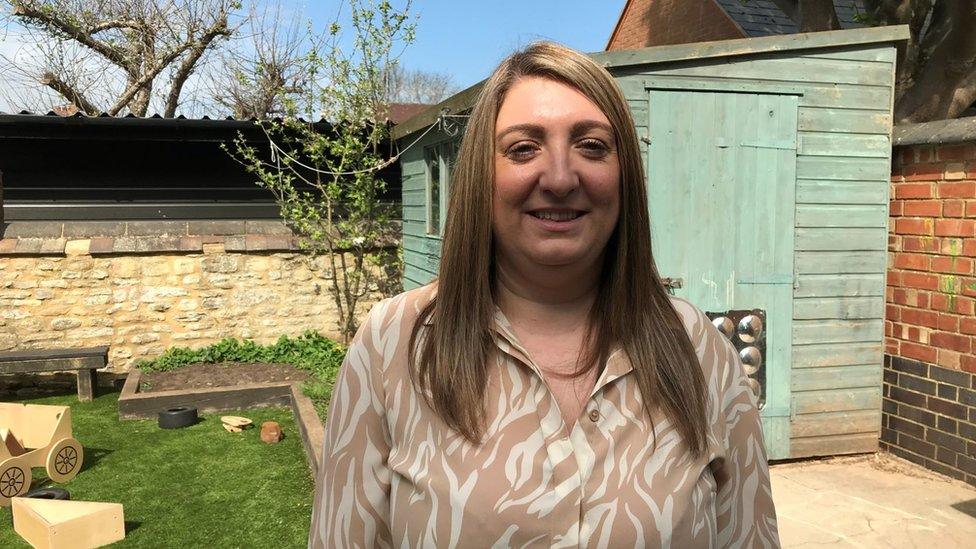Difficult to fill early years vacancies says nursery group
- Published

Acorn Early Years said it had vacancies at almost all of its 16 nurseries in Milton Keynes, Northamptonshire and Bedford
The manager of a group of nurseries said it had been "incredibly difficult" to recruit qualified early years staff.
Figures from the South East Midlands Local Enterprise Partnership (SEMLEP) showed vacancies in the sector had increased by 45%.
Laura Andrews from Acorn Early Years, which has nurseries in Milton Keynes, Northamptonshire and Bedford, said there was "not the people out there".
The government said it was investing £180m into pre-school staff training.
SEMLEP, which covers Northamptonshire, Milton Keynes and Bedfordshire said before the pandemic there were 701 nursery nurse, assistant and play worker vacancies.
According to its figures there were now 1,015 vacancies, a 45% increase.
Ms Andrews, senior early years manager at the nursery group, said: "Recruitment is just really difficult, it's difficult to try and find the right people."
She said the majority of recruits were "coming from other nurseries" rather than new people entering the sector.
Ms Andrew said: "We've got 16 nurseries and we're recruiting at pretty much all of them.
"We can get some unqualified [staff], but even that's difficult. [Recruiting] early years practitioners, that's incredibly difficult. There doesn't seem to be very many people coming through college any more."

Laura Andrews, from the nursery group, said people were leaving early years education for other careers
She said the nursery group was "home-growing our own" through apprenticeships, but that would not immediately solve the recruitment problem.
Ms Andrews said nurseries were not able to "offer the same money as competitors such as retailers".
"The funding isn't there from the government, the early years just isn't seen as the priority," she said.
Paul Thompson, employment and skills manager for SEMLEP, said job vacancies had "gone up from pre-pandemic levels" across several sectors.
He said there was a combination of reasons, including Brexit and "people reflecting on their work and lifestyle" during the pandemic.
A Department for Education spokeswoman said: "We are increasing the hourly rates that childcare providers will receive, reflecting the costs many employers face, including rising wages for their staff, and have already announced a package of up to £180m to provide better training and support for staff working with pre-school children, as part of our education recovery programme.
"We are aware of concerns about workforce recruitment and retention and are working with the sector to look further at how we can support providers in this area."

Find BBC News: East of England on Facebook, external, Instagram, external and Twitter, external. If you have a story suggestion email eastofenglandnews@bbc.co.uk
- Published14 January 2022

- Published5 August 2020
